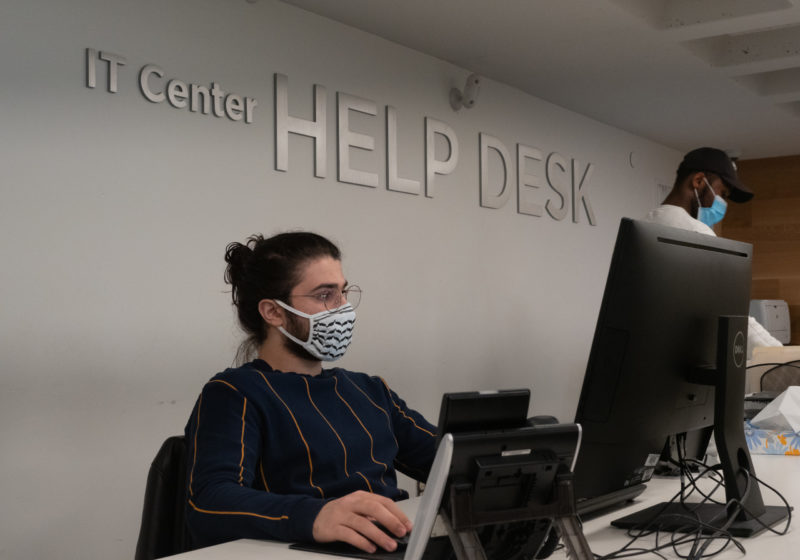On Thursday night, I was in the middle of a club’s weekly meeting. The meeting was going well until, suddenly, everyone’s Zoom square froze, and the audio cut out. About half a minute later, it was back, but a third of the people had been booted from the meeting.
Soon I found out what happened through my hall’s group chat: The WiFi had cut out for the entirety of Riverview A, and likely for other Riverview buildings, too. When someone called IT, they learned that they were doing maintenance from 8 p.m. to 11 p.m. and that they didn’t know when service would be restored.
Luckily, the WiFi was restored in about an hour. But some people had assignments due that night and had to scramble to find ways to work on them in the meantime, whether by using data to create a hotspot or by writing offline if possible.
This wasn’t the first time this semester that I’ve had WiFi issues. It feels like at least a couple times a week, everyone in my meeting freezes as I’m greeted by the ominous warning: “Your internet connection is unstable.”
Students often joke about renaming the University’s WiFi network from “UR_Connected” to “UR_Not_Connected,” and I’m beginning to understand why.
Likely, the WiFi this semester is no different than in past semesters. My WiFi definitely cut out in the past, but since being online is so important — and so constant — this semester, I notice it more.
Of course, it’s extremely difficult to build a system that can handle thousands of students streaming classes at once. And I’d much rather the University spend money on testing, subsidized housing, meal plans for winter stay, and quarantine capacity than on reducing the amount of times my WiFi cuts out from five times a week to once a week.
Additionally, I understand that the University can only make a difference for people living on campus, leaving people who were unable to return to campus to figure out their internet issues on their own.
But this semester more than ever, WiFi matters to us.
In order for online classes to work, we need WiFi to work. In order to take online tests and turn in online assignments, we need WiFi to work. In order for clubs to function online, we need WiFi to work.
When Zoom tells me, “Your internet connection is unstable,” it’s a reminder not just that the WiFi is unstable, but also that my personal connections with others in general are subject to the random whims of poor internet service and a global pandemic.
This year, running social and academic life through a screen has become a necessity. But it’s also becoming a habit. Is that a problem? I don’t know. And even after the pandemic, we’ll all still use computers and want good WiFi. It’s just important to remember how dependent on it we’ve become.
Take the time when your internet freezes to reflect on what you want your relationship with technology to be after the pandemic, or to think about just how much scientific innovation has improved our lives.
Alternatively, spend the brief periods your WiFi cuts out praying that the meeting is being recorded so that you can go back and find what you missed.




